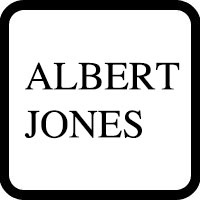Millport White Collar Crime Lawyer, Alabama
Sponsored Law Firm
-
 x
x

Click For More Info:
-
The Law Offices of Richard L. Cooper, P.A.
848 Brickell Avenue Suite 800 Miami, FL 33131» view mapDWI/DUI, Drug Trafficking, Felony Nationally Ranked Top 40 Under 40
With Richard L. Cooper you can expect a trusted confidant who will work diligently to fully understand your case and determine a road map to help you regain control of your life.
800-756-2781
Not enough matches for Millport White Collar Crime lawyer.
Below are all Millport Criminal lawyers.
Albert Jones
✓ VERIFIEDAccident & Injury, Divorce & Family Law, Criminal, Estate
Albert Jones is a practicing lawyer in the state of Alabama.
Anne Wilson Guthrie
✓ VERIFIEDBankruptcy, Family Law, Juvenile Law, Social Security, Divorce & Family Law
Anne Guthrie is a practicing lawyer in the state of Alabama. She received her J.D. from University of Alabama School of Law in 2000. Anne works at Wil... (more)
Leif Rush Hampton
Divorce & Family Law, Criminal, Personal Injury, Accident & Injury
Status: In Good Standing
FREE CONSULTATION
CONTACTElizabeth Pendergrass Glasscox
Criminal, Misdemeanor, Motor Vehicle, Traffic
Status: In Good Standing Licensed: 20 Years
Elizabeth Pendergrass Glasscox
Criminal, Personal Injury, Divorce & Family Law, Employment
Status: In Good Standing Licensed: 20 Years
Ronald Howard Strawbridge
Wills & Probate, Divorce, Criminal, Accident & Injury
Status: In Good Standing

 Richard L. Cooper Miami, FL
Richard L. Cooper Miami, FL AboutMiami Attorney at Law
AboutMiami Attorney at Law ServicesCriminal Defense
ServicesCriminal Defense


